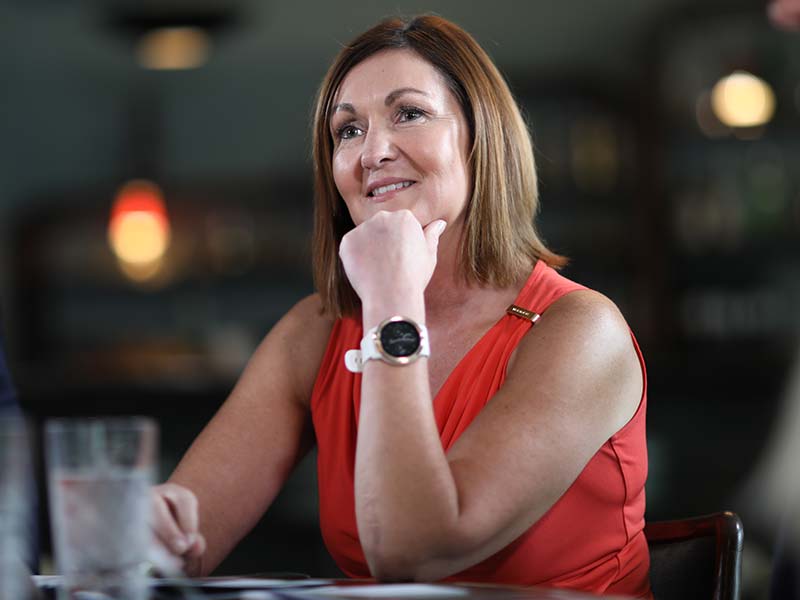Pension troubles: what is the best strategy for retirement for business owners?
After consulting our panel of advisers, they suggest that steady pension investments and long-term preparations are the best way to build secure and sustainable retirement plans for self-employed business owners.
Sitting down with a panel of financial advisers, we wanted to find out from their experiences dealing with business owners what they think the most common retirement behaviours are and how advisers can help.
One of the most common assumptions among business owners is the belief that selling their company will eventually provide them with all the security they need for their retirement years. This takes significant planning, however, and many owners in the mid-range of their career cycle fail to take into account the risk of their business becoming obsolete due to market changes. The possibility to sell the business for a substantial sum may not actually materialise in twenty years time.
‘I think there’s a certain naivety amongst business owners about exit strategies,’ says Lee Waters, chief executive of Barwells Wealth. ‘I don’t think it forms part of their long-term business plans. They know they want an exit strategy and they know they want to exit the business, but they’ve no idea how that comes about.’
In addition, a lot of business owners assume that the government’s current Entrepreneurs’ Relief scheme – which enables owners to extract their assets from the business at a low rate of capital gains tax – will always be there. However, many advisers point out that it is dangerous to assume that the scheme will remain. The current government is under considerable pressure to increase the capital gains rate, and a new government may scrap the scheme altogether.
Minesh Patel, EA Financial Solutions
‘In my opinion, the most successful owners are the ones who built up substantial personal assets because they’ve been putting money aside for many years,’ says Minesh Patel, chartered financial planner and director at EA Financial Solutions. ‘They’ve bought a property or two if they’re able to and then, fortunately, they’ve been able to sell their business for a substantial sum.’
To make this feasible, advisers believe one of the crucial first steps is efficient cashflow and budget planning so business owners can keep their personal and business finances separate. This isn’t always easy, especially for smaller companies or those in the early stages of their growth cycle.
‘Planning is key because there’s a time lag for a lot of self-employed people, especially employers,’ says Jade Williams, director of JLW Financial Solutions. ‘What ends up happening is that they’ve got to save all this money for different things like tax, for HR costs. So, it’s really difficult to keep the business and personal side separate, but if you can establish that, it’s helpful.’
Pension Benefits
However, setting aside certain sums of money for personal matters, such as paying into a pension, can have multiple benefits. Pensions can provide a sizeable amount of tax relief for business owners, even though some may be initially dubious about the idea. Even if they are enthusiastic, from experience, advisers say that it’s usually necessary to keep reminding them to pay money into the scheme on a regular basis.
‘You do have to keep reminding them every year, should you top up your pension?’ Patel says. ‘They may not do the maximum, but they’ll stick in a few thousand every few years when they’ve got the money. You also have to be steadfast and not buy into the client’s rhetoric just because they’ve read that pensions are rubbish. You’ve got to be persistent in pointing out that pensions are a good vehicle and reinforce the benefits.’
Williams typically uses pictorial illustrations to emphasise the tax-saving advantages of pensions to incentivise her client. From a long-term perspective, she and other advisers also point out that pensions offer a more accessible retirement safety net, given the unaffordability of property.
But as well as paying into pensions, advisers urge business owners to consider putting any cash they have tied up in their company into an investment portfolio, which will yield returns over a longer timeframe and enable their money to work harder for them for when they need it in later life. As Patel explains, this can be done in a variety of ways.
‘It’s not always taking money out of the business, but also recognising that you can invest money through the business,’ he says. ‘That’s a conversation to be had with company directors, as the money can be recalled obviously, but it could fluctuate in value. If they’re sophisticated, they’re willing to look at that as well.’
Client attitudes toward retirement planning can vary substantially. Some are keen to discuss the advantages of various funds and multi-asset strategies, while others are reluctant to make a foray into the investing world. Entrepreneurs, who are used to risk, are interested in venture capital trusts, while others prefer to take a more safety-first approach. But for all business owners, advisers suggest that a key short-term incentive for
investing can be pointing out the potential tax disadvantages of merely leaving money sitting in the business.
‘The issue I always have is convincing them to take money out of the business so they can invest it privately,’ says Brian Davies, an independent financial adviser and principal partner at Beaufort Financial. ‘All they’re worried about is tax but I often sit and say to them, you’ve got to realise that we’re in a really low-tax world at the moment. Regardless of what everyone’s political views are, capital gains tax is really low, income tax is really low. So not taking the money out of the business could actually cost you more in tax if we have a change of government.’
Planning ahead
Across the financial advice spectrum, advisers feel that there’s a vital need for sustainability education when it comes to planning for later life. Few business owners understand the amount of money they will need to enjoy the retirement they envisage.
‘Some will start to run out of money,’ Patel says. ‘If they’ve been drawing a considerable income from the business, it’s very hard to replicate that unless you’ve got a very substantial portfolio.’
Advisers suggest that it’s crucial to sit down with clients and look at how many years their investments or pension are going to last them. With life expectancy rates continually on the rise, even a pot of £500,000 may not be as lucrative as it may seem.
‘With 90% of my clients, they will have half their current income in retirement,’ says Williams. ‘Going from a £100,000 a year income down to £30,000, it changes their entire thinking, and it’s too late then, which is what we really need to emphasise when it comes to planning for the future.’


